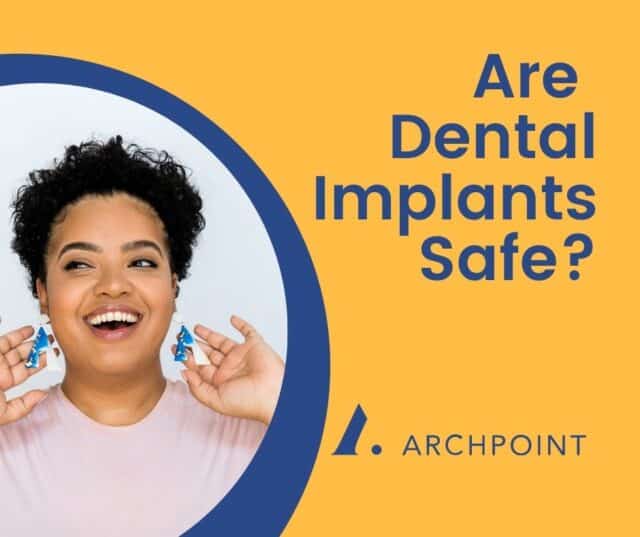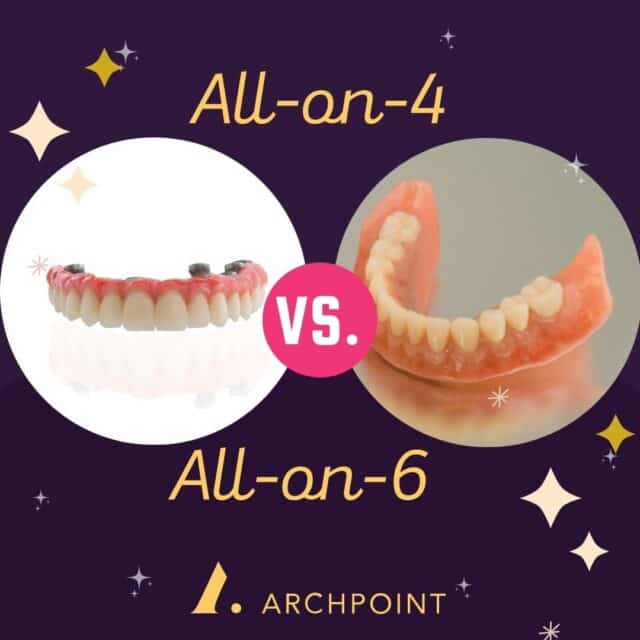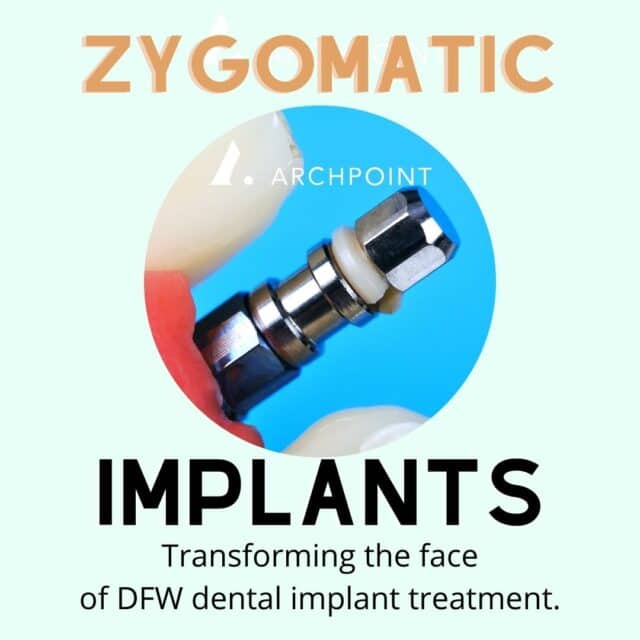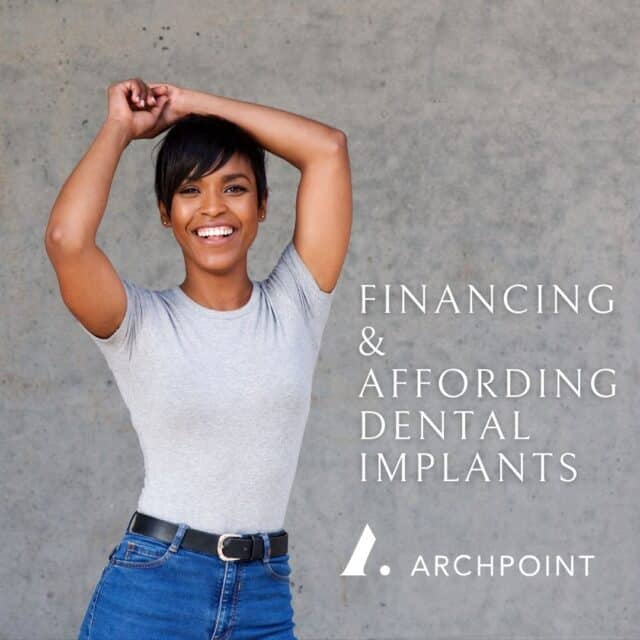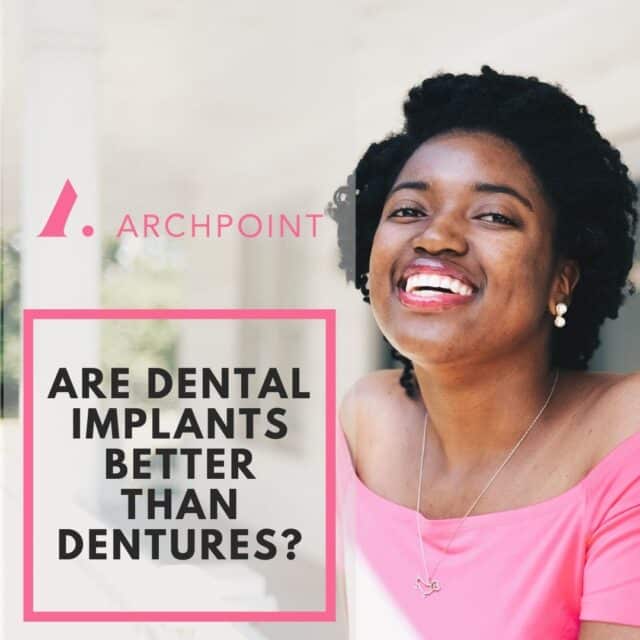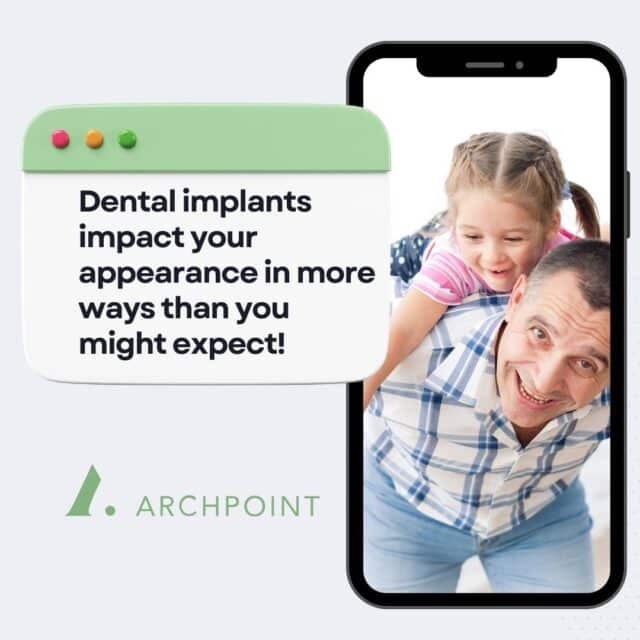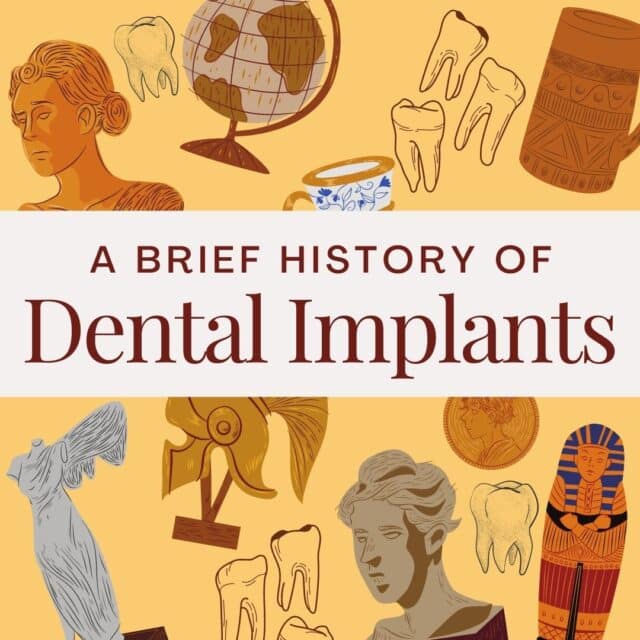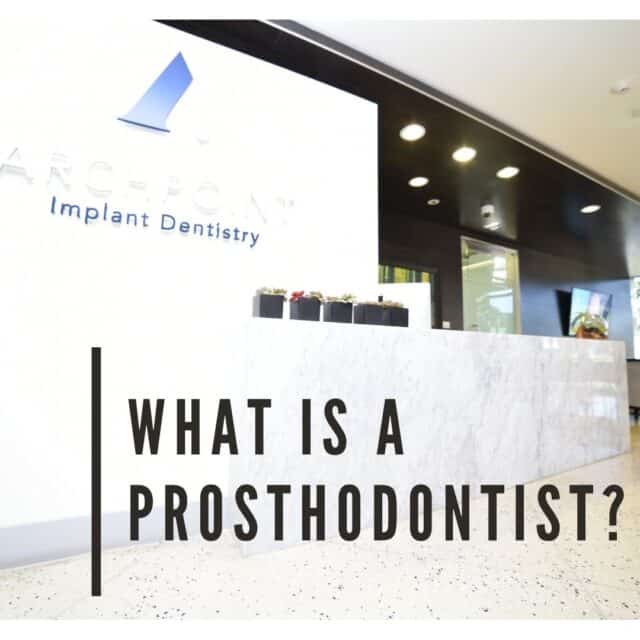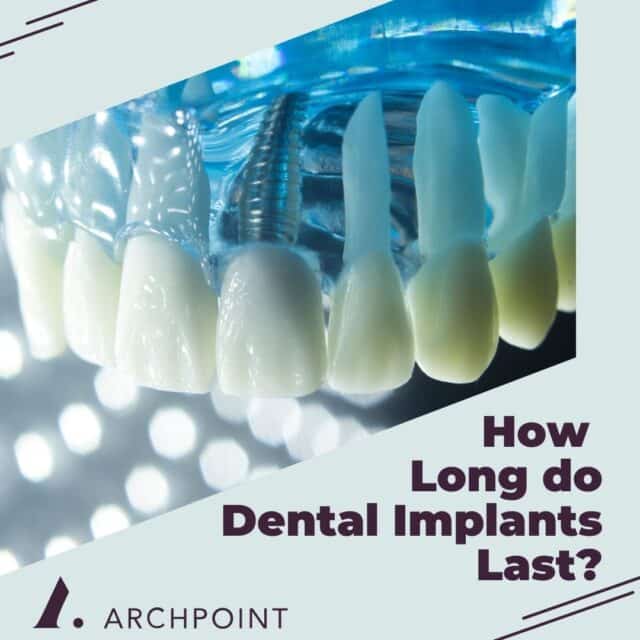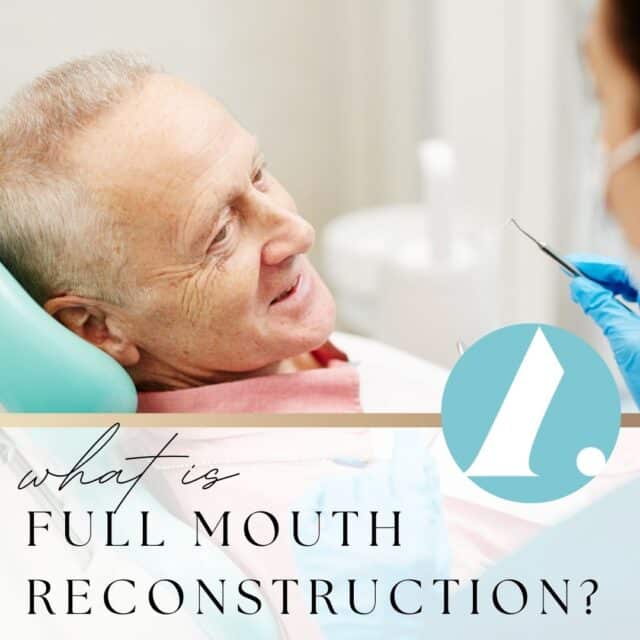If you have missing teeth and plan to put something permanent in their place, you want (and need) to know whether that item is safe or not. In this case, we’re talking about dental implants.
Dental Implants are Minimally Invasive
Getting dental implants is “safer” for your smile because they don’t alter the healthy teeth next to them. If you’re getting a traditional dental bridge, the healthy teeth on either side of your missing tooth have to be cut down for the bridge to fit over them.
Whenever you place a dental implant, you’re looking out for the best interest of your overall smile. Since you’re not altering the adjacent teeth, you’re essentially protecting them and helping them to last longer than if you were getting a dental bridge.
Even the installation of dental implants is considered a minimally invasive procedure. While a lot of people prefer to have sedation during the appointment, you can technically install implants only using a small amount of local anesthetic. It’s that safe of a process!
Implants are Made From Biocompatible Materials
Dental implants are made out of some of the very same materials that surgeons use for joint and bone repair because they encourage healthy, dense bone where they’re installed. They’re completely hypoallergenic and don’t trigger an immune response from your body, like you would see in an organ transplant, for example.
Since dental implants are installed inside of your bone, they need to be biocompatible. But they actually go beyond just being safe for your body. The titanium materials trigger your jaw bone to stimulate an osseointegration process, where new bone is formed onto the implant, anchoring it in place. This is what makes implants so strong and predictable. No other type of tooth replacement offers the same type of biocompatibility or integration the way dental implants do.
Are You Worried About a Metal Allergy?
Titanium is ultra-gentle and safe, even for people who have extreme metal allergies. If you have concerns, be sure to let us know. There are also ceramic implant designs out there that are an option if we need to take extra precautions.
When someone has sensitive skin and breaks out easily—such as if they wear cheap or costume jewelry—they might wonder whether it’s safe to install a “metal” dental implant in their mouth. But just like wearing sterling silver or 14-carat gold jewelry, a titanium dental implant is gentle on your skin.
With the movement to get away from metal fillings or products that contain mercury, it’s natural to ask whether or not dental implants are safe. We’re here to assure you that they are!
Are There Risks Associated with Dental Implants?
Dental implants have about a 98-99% success rate. Which means there is about a 1% chance of risks or complications associated with this tooth replacement procedure.
Nearly all dental implant complications are caused by peri-implant infections (similar to gum disease) or faulty dental implant placement on the part of an inexperienced dentist.
To prevent complications, you need to clean and care for your implants as if they were natural teeth. That means daily brushing and flossing, as well as regular checkups.
Choosing the best DFW implant dentist is also an important step to take. You need to make sure that your providers are well-versed in implant therapy, especially if you have significant tooth and bone loss.
Everyday Health of Implants vs. Dentures
If you aren’t getting dental implants, you’re probably getting dentures or partials. But one of the biggest complications of dentures is accelerated bone loss. Whenever you wear a removable prosthesis full-time or make the mistake of sleeping in one, it puts pressure on your jaw and stimulates accelerated bone resorption (shrinkage.) That may not seem like a problem now, but it will cause your denture to fit more loosely and feel uncomfortable, not to mention change the shape of your face.
Since implants stimulate bone integration, you don’t have to worry about the risk of shrinking bone in your facial profile. That way you have a stronger bite to chew with, and a more youthful-looking appearance.
You’re Not Rushing Through the Process
Getting dental implants is relatively safe, as long as you’re not rushing through the placement. If you get implants today and immediately install a same-day permanent crown or bridge, those implants are likely to fail. They often take months to integrate with the bone around them. If you rush the process, your success rate is extremely compromised.
Fortunately, there are ways to install dental implants and get temporary teeth in a day restoration to wear while they integrate. These healing prostheses are meant for aesthetic purposes so that you don’t have to go around with any missing teeth. But once your implants are fully integrated, we would then fix a permanent restoration like an All-on-4, All-on-6, or multi-tooth dental bridge.
A Lifelong Investment
When it comes to finances, dental implants are a “safe bet” too. Your investment in implant therapy is something that’s designed to last the rest of your life. So, you won’t have to play a guessing game as to how long they’ll last or whether or not you’ll need to replace them in 5-10 years. Because implants are made to last forever.
Just remember, you get out of dental implants what you put into them. Great home care and an experienced treatment team are the best way to ensure you protect your new smile.
Dental Implant Specialists in DFW
ARCHPOINT Implant Dentistry provides our clients with safe, predictable tooth replacement options in DFW. As specialists, we understand which type of dental implant and treatment techniques are best and safest for our patients. We work side-by-side with each of our patients to develop a care plan that fits their lifestyle, oral health needs, and long-term goals.
If you’re considering dental implants to replace your missing teeth, contact ARCHPOINT in Dallas or Ft. Worth today to request a no-obligation, one-on-one evaluation with one of our specialists.
